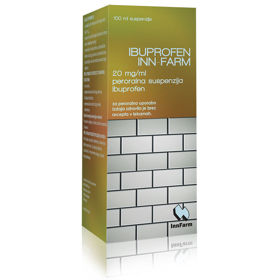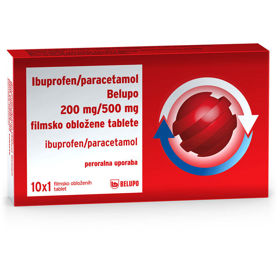Customer question:
Inflammation of the nerve in the hand - what is it and what are the symptoms? Question from an anonymous customer
Pharmacist's answer:
Carpal tunnel syndrome is caused by pressure on the median nerve. The carpal tunnel is a narrow passage surrounded by bones and ligaments on the side of the palm. People generally describe the pain as stinging, burning, or tingling.
The median nerve travels up the upper arm, over the elbow, into the forearm, then passes through the carpal tunnel in the wrist and continues to the hand and fingers. It separates into several smaller nerves along the way, especially when it reaches the palm. These nerves make it possible to feel the thumb, index finger, middle finger, and half of the ring finger.
The median nerve also controls the muscles around the base of the thumb. The nine tendons flexing the fingers and thumb also travel through the carpal tunnel and the nerve. These tendons are called flexor tendons because they bend the fingers.
In most patients, carpal tunnel syndrome worsens over time - we are talking about inflammation of the nerve in the hand and symptoms. However, if the condition is not treated long enough, it can cause permanent impairment of the hand's function, including loss of feeling in the fingers and weakness. For this reason, timely diagnosis and treatment are essential.
Symptoms of carpal tunnel syndrome usually start gradually and include:
- Tingling or numbness in the fingers or hand: usually, the thumb and index, middle, or ring finger are affected, but not the little finger. You may feel an electric shock in these fingers.
- The sensation can spread from the wrist up the arm: these symptoms often occur when you are driving a car (holding the steering wheel) and holding a phone or newspaper, or they wake you up from sleep.
- Weakness: you may feel weakness in your hand and, as a result, drop objects from your hand. This may be due to numbness in hand or weakness of the thumb pinch muscles, which are also controlled by the median nerve.
- Reduced flexibility: Nerve damage can reduce flexibility and motor function in hand.
If you experience nerve pain, tingling, or other symptoms in your hands, seek medical attention, significantly if your symptoms affect your ability to function or do daily tasks and if you do not know what is causing the discomfort.
Signs that it is time to call your doctor include:
- your symptoms are interfering with your daily life
- the pain is long-lasting and lasts for several days
- You cannot do regular tasks with your hands
- home treatment of symptoms is ineffective
- suffer from loss of sensation and numbness
Interesting reading: Inflammation eyes home remedies
Interesting reading: How does thyroid inflammation appear











 Facebook
Facebook
 Instagram
Instagram
 info@moja-lekarna.com
info@moja-lekarna.com

